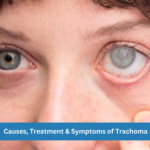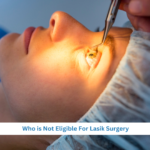What to Expect During Your Recovery From Cataract Surgery
Cataract surgery involves replacing the cloudy eye lens with an artificial lens. Over the years, cataract surgery techniques have greatly improved. While ICCE/ECCE procedures are now rarely performed, phaco cataract surgery has become common. Laser cataract surgery has revolutionized the procedure by eliminating the use of blades. Before undergoing cataract surgery, a thorough examination of the eye is conducted to assess vision and eye pressure. IOL power measurement is then performed, followed by a discussion with the surgeon regarding the best IOL option for the patient. To ensure a successful surgery, a few blood and urine tests are required, with particular attention given to blood sugar control.
Recovery Process: Cataract surgery is typically done on a day care basis, making it convenient for patients. Modern cataract surgery is considered safe and requires only topical or eyedrop anesthesia—no injections or bandages are necessary. After the surgery, most patients experience improved vision within a few days. The surgery itself usually takes around 15 minutes, after which the patient rests in the recovery area. The doctor examines the operated eye using a slit lamp and provides the patient with a discharge summary and post-operative instructions, provided everything is normal. For a few days following the surgery, patients are advised to wear dark glasses when outdoors to protect against dust and light sensitivity.
Precautions and Care: Before the surgery, it is important to avoid using scented products and applying eye or facial makeup. Unless directed otherwise, a light breakfast can be consumed, and prescribed medications for diabetes, blood pressure, heart, and joint conditions should be taken as usual. Following cataract surgery, patients should carefully administer prescribed eye drops, avoid getting water in their eyes, refrain from extreme weight lifting and swimming, and never rub or scratch their eyes. Good eye hygiene should be maintained, and strict adherence to all post-operative care guidelines is crucial. Regular annual eye exams are recommended.
Recovery Timeline: In the first month after surgery, most precautions should continue to be followed. It’s normal to experience cloudy, blurry, or distorted vision during this period as your eyes adjust. Each person’s healing process is different, and it may take several weeks to achieve perfectly clear vision. It’s not uncommon for eyes to appear red after surgery, but this redness should dissipate within a few days. Follow-up appointments are typically scheduled on post-op day 1, 7, 21, 6 weeks, and 3 months. During the recovery period, patients may experience occasional dryness and scratchiness, which should improve as the eye heals. Artificial tears may be needed for a month.
When to Seek Immediate Medical Attention: If you experience extreme discomfort, a severe deterioration in eyesight, or an increase in eyelid swelling, it’s important to contact Rana Eye Hospital right away. Your doctor will prescribe glasses during the post-op appointment, typically scheduled one month after surgery. If you have any questions or concerns about cataract surgery, don’t hesitate to reach out to Rana Eye Hospital.
Please note that it’s always recommended to consult with a medical professional for accurate information regarding cataract surgery and post-operative care.






No Comments